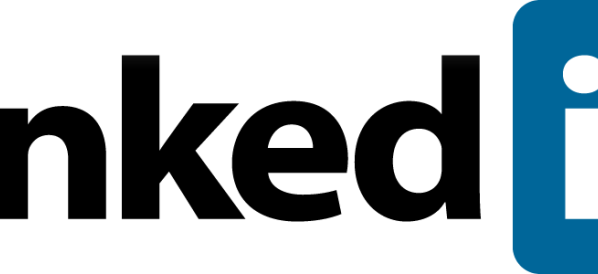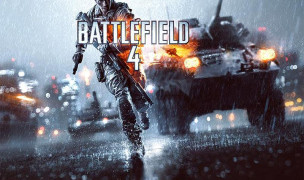 3 Terms
3 TermsHome > Terms > English (EN) > poetry
poetry
The last gasps of the American revolutionary spirit were choked out in the Civil War, when the most conservative form of liberal government ever invented unhinged its jaws and swallowed its antithetical self, the South, whole, only to have to regurgitate some of its bones, of course, every twenty years or so since 1865. The lesson is that no revolution, no matter how revolting, can avoid the voracious maw of a stable Democratic republic that will assimilate, digest and even grow fat on anything.
The political is the poetical. America is so huge that any revolution will find its audience here and none can possibly disturb it. Our pilgrim Protestantism is our special handicap: American poets believe in a personal poetics the way Luther believed in a personal God; alas, we usually skip any dreary reading of the scriptures on our way to revelation. (American poets start reading poetry only after they have started writing “poems.”) American poets don’t even really like poetry (cf. Marianne Moore); it’s a subject to avoid, like politics or religion.
We cannot agree on what makes poems good. We cannot agree on what defines the craft. We may praise our diversity publicly, but when we do so we deny our divisiveness.
We bond, when we do, through our dislikes, and we will not be led, or defined, by anything but our personal constituencies. “Don’t Tread On Me” and “Live Free or Die!” were the slogans on American revolutionaryera snake flags; those snakes were severed.
The unity in American poetry can be heard in our relatively democratic, demotic voices. Yet even a plain-speaking American poet is apt to dislike two or more of the following “schools” for one or more reasons: beat poetry (too loose structure, antiestablishment rhetoric, often bisexual or homosexual as if that were interesting); formalist poetry (uptight structure for its own sake, dead white pseudo-establishment rhetoric, often homosexual); L=A=N=G=U=A=G=E poetry (nonce or non-traditional structure, arhetorical—the last thing it wants to do is convince anyone of anything, asexual); slam poetry (dramatic structure, antiestablishment rhetoric enhanced by screaming, pan-sexual); world poetry (sounds like translation, employs traditional European rhetorics, often bior homosexual as if that didn’t matter); and the poetry of personal growth (loose structure, earnest anti-establishment rhetoric, pan-sexual—all in fear of casting judgment). Some poets do cross over: in the Haight-Ashbury for instance, it used to be cool to hate Ashbery; no more.
Gil Scott-Heron didn’t know how right he was when he forecast that “the revolution will not be televised.” He didn’t know he was pointing to the impossibility of revolution in a country where everything is televisual. (Seeing Los Angeles, CA burn puts out fires in Atlanta; Mark Strand on the Internet encourages a beatnik in Seattle.) American poetry of the future will certainly be polyglot (the dominance of English will recede), published in cyberspace (less and less print) and defined by performances (preserved on CD and DVD) instead of text. Everything will be possible and nothing will matter to us all.
- Part of Speech: noun
- Synonym(s):
- Blossary:
- Industry/Domain: Culture
- Category: American culture
- Company: Routledge
- Product:
- Acronym-Abbreviation:
Other Languages:
Member comments
Terms in the News
Billy Morgan
Sports; Snowboarding
The British snowboarder Billy Morgan has landed the sport’s first ever 1800 quadruple cork. The rider, who represented Great Britain in the 2014 Winter Olympics in Sochi, was in Livigno, Italy, when he achieved the man-oeuvre. It involves flipping four times, while body also spins with five complete rotations on a sideways or downward-facing axis. The trick ...
Marzieh Afkham
Broadcasting & receiving; News
Marzieh Afkham, who is the country’s first foreign ministry spokeswoman, will head a mission in east Asia, the state news agency reported. It is not clear to which country she will be posted as her appointment has yet to be announced officially. Afkham will only be the second female ambassador Iran has had. Under the last shah’s rule, Mehrangiz Dolatshahi, a ...
Weekly Packet
Language; Online services; Slang; Internet
Weekly Packet or "Paquete Semanal" as it is known in Cuba is a term used by Cubans to describe the information that is gathered from the internet outside of Cuba and saved onto hard drives to be transported into Cuba itself. Weekly Packets are then sold to Cuban's without internet access, allowing them to obtain information just days - and sometimes hours - after it ...
Asian Infrastructure Investment Bank (AIIB)
Banking; Investment banking
The Asian Infrastructure Investment Bank (AIIB) is an international financial institution established to address the need in Asia for infrastructure development. According to the Asian Development Bank, Asia needs $800 billion each year for roads, ports, power plants or other infrastructure projects before 2020. Originally proposed by China in 2013, a signing ...
Spartan
Online services; Internet
Spartan is the codename given to the new Microsoft Windows 10 browser that will replace Microsoft Windows Internet Explorer. The new browser will be built from the ground up and disregard any code from the IE platform. It has a new rendering engine that is built to be compatible with how the web is written today. The name Spartan is named after the ...
Featured Terms
LinkedIn is a business-oriented social networking service. Founded in December 2002 and launched on May 5, 2003,it is mainly used for professional ...
Contributor
Featured blossaries
Browers Terms By Category
- Authors(2488)
- Sportspeople(853)
- Politicians(816)
- Comedians(274)
- Personalities(267)
- Popes(204)
People(6223) Terms
- General architecture(562)
- Bridges(147)
- Castles(114)
- Landscape design(94)
- Architecture contemporaine(73)
- Skyscrapers(32)
Architecture(1050) Terms
- News(147)
- Radio & TV broadcasting equipment(126)
- TV equipment(9)
- Set top box(6)
- Radios & accessories(5)
- TV antenna(1)
Broadcasting & receiving(296) Terms
- Human evolution(1831)
- Evolution(562)
- General archaeology(328)
- Archaeology tools(11)
- Artifacts(8)
- Dig sites(4)
Archaeology(2749) Terms
- Cosmetics(80)




